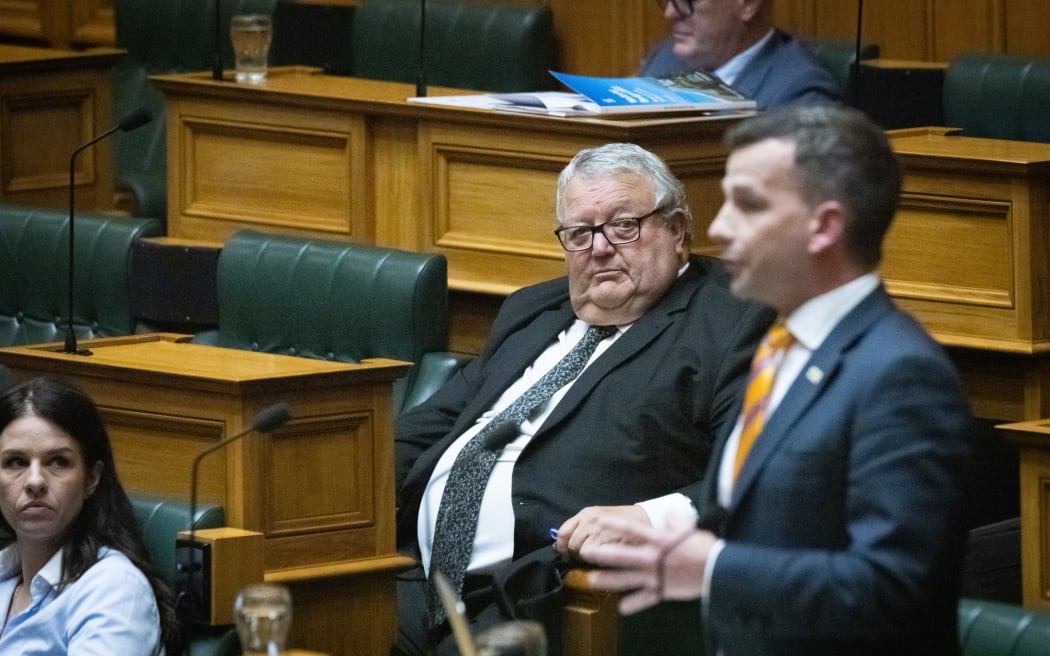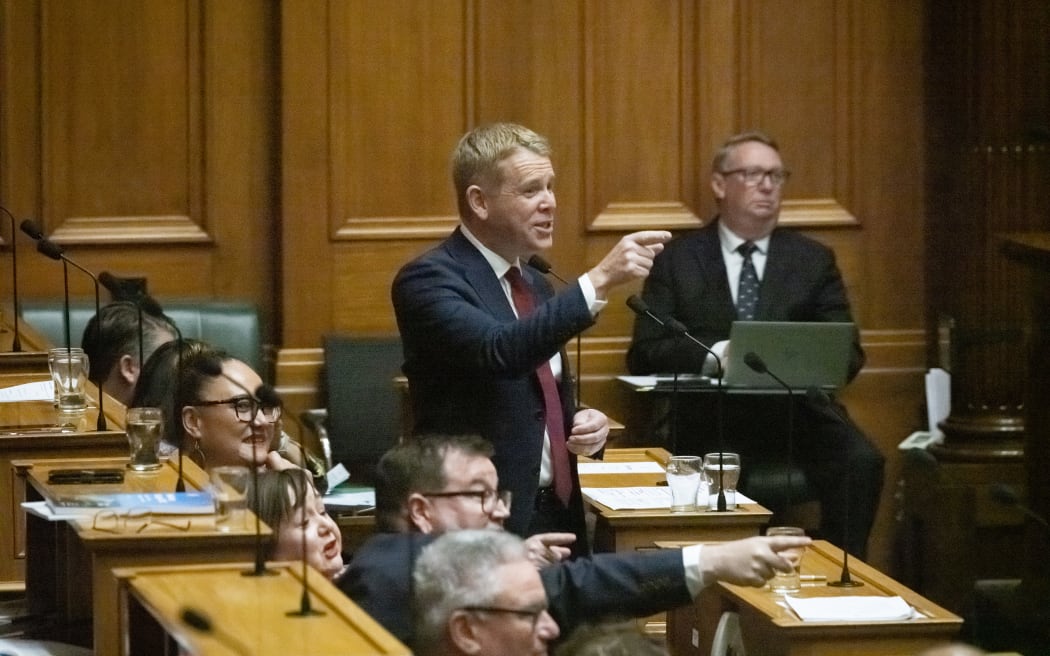As the election nears Question Time increasingly sheds its traditional oversight function and tries wearing another cloak - a platform for election talking points.
ACT leader David Seymour had this week’s first question, and in the afterglow of his party conference he took the chance to follow up on a key talking point from that gathering: claims of a choking thicket of bureaucracy, red tape, and regulation.
His plan was to ‘question’ the Prime Minister about examples of bureaucracy. It went brilliantly, so long as you ignored the answers.

National Party MPs Erica Stanford and Gerry Brownlee listen to David Seymour in the debating chamber. Photo: VNP / Phil Smith
Claim-and-comment Time
Question Time is built for discovery. It works best with an intent of unearthing the unknown and cornering the equivocating.
A core purpose of Parliament (exemplified in Question Time) is to provide oversight and keep a check on government. That’s the theory.
The practice is different, especially in an election year. It becomes less checking on the government and more campaigning to be the government, with Question Time as an opportunity to showcase political messaging with claims or propositions only masquerading as questions.
The current Speaker has been quite relaxed in his refereeing questions (for which there are numerous rules), and that may have amplified this election year tendency.
Recently Question Time has become less an inquisition and more a showcasing of claims with requests for comment.
It doesn’t always play out well for the questioner - unless you are ignoring the answers. Yes, that is possible - sometimes questions are clipped for social media without the answer much included.
Here are two examples from Tuesday’s first exchange of the week.
The imperfect example
One trap is not finding the ideal example. This exchange is between ACT Leader David Seymour and Labour Leader and Prime Minister Chris Hipkins.
DS: “Is he aware that early childhood education (ECE) providers need to comply with 303 different regulations before they can open their door in the morning, including keeping records for three months of all food they've served and the time they served it to whom, and is he aware of any situations where keeping these records has justified the cost of doing so?”
CH“The safety of children in early childhood education is something that all parents will prioritise, and therefore the regulations in this space are designed to ensure that our most vulnerable young children are kept safe while they are in early childhood education. There has been extensive consultation in recent years around the food safety guidelines in early childhood settings, and it happened after a child was brain damaged during an ECE service whilst eating.”
DS: “If he really cares about kids in early childhood education, why is it that he puts in place regulations that he cannot demonstrate the benefit of since they've been in place—not even once?”
CH: “I believe I just did.”

Chris Hipkins, Megan Woods and Grant Robertson all point at the ACT Party during the budget debate. Photo: VNP / Phil Smith
Failing to pre-empt the answer
A second trap that MPs often fall into in making such claims is not following the advice of chess masters, journalists, police detectives and barristers: don’t ask questions with no clue as to the answer.
Again David Seymour and Chris Hipkins
DS: “Has the ban on pseudoephedrine and over-the-counter cold and flu medicines stopped or even slowed the P epidemic, and, if not, why is that law still in place at great cost to Kiwis who just want to blow off a winter chill with the most effective medicine possible?”
CH: “Well, the good news is that those who are getting prescription pseudoephedrine for a cold or flu from their doctors now won't have to pay the cost of picking that up from the pharmacy under this Government. I note that it was the National-ACT Government that banned over-the-counter pseudoephedrine and required that people have to go to their doctors in order to get it.”
There are two dozen or so Question Times left in the 53rd Parliament, during which we can reasonably expect more of these types of talking point questions.


